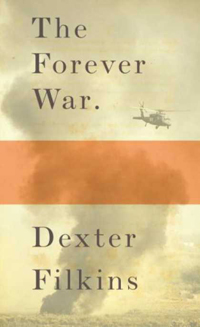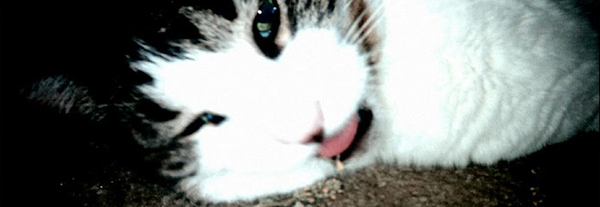Babble on Babylon

“Go to, let us go down, and there confound their language, that they may not understand one another’s speech,” says the ticked off voice from above in the Book of Genesis (11:7) — though modern versions prefer confuse to confound, retroactively auspicious, since Babel sounds like the revised “confuse” (bālal) in Hebrew — thereby scattering our tongues into various, um, babbles, from the harshest Cantonese, bluntest Ebonics, to the always DTF-French. Regarding the etymology of babble, “no direct connection with Babel can be traced; though association with that may have affected the senses,” attests the Oxford English Dictionary. Near bizarrely, the original English word for babble was babeln (c. mid-13th century), that helpful -n a kiss away from Babylon, just for funnies, where this all supposedly took place, meaning “gateway to God.” Early 19th century philosopher Jeremy Bentham conceives the Panopticon, an institutional building (usually prison, though also applicable to hospitals, daycare, etc.) in which authorities at an omniscient center have a 360° view of the entire perimeter. Mr. metaphor Foucault (in Discipline and Punishment, 1975) is moved by the idea of “permanent visibility,” a form of power whose construct was more imperative than its actually being possible: the prison guards, while having access to the sweeping perimeter could only look at one area at a time, their backs turned to everything else. The habitual possibility of being watched was just as effective as actually being watched. Hence, religion as security cam.
The Forever War
 The Forever War
The Forever War
by Dexter Filkin
Knopf, 2008 / Vintage reprint 2009
384 pages / Buy 1st edition from Amazon ($25); Buy Reprint edition from Amazon ($15.95)
The Forever War, by Dexter Filkins. Nonfiction—investigative journalism. A journalist’s stories from Afghanistan and Iraq. Highly violent and disturbing, filled with bizarre wartime details, reminiscent of Apocalypse Now, conveying at times the hallucinogenic weirdness of wartime events (for example, the story “Blonde,” in which an American army platoon displays one of their female soldiers and announces that she is “for sale,” as a distraction to the Iraqi males in a village, thereby allowing the unit to search the Iraqis’ homes without encountering resistance). Obviously not a cheerful book. Just look at the author photo.
The book opens with a prologue entitled “Hells Bells,” describing the 2004 assault on Fallujah from the footsoldier’s perspective in terms that are not mournful but grimly exuberant—just like the heavy metal rock song “Hells Bells” (by AC/DC), which is playing from loudspeakers during the attack. We witness combat as a lethal game of tackle football, in which the marines and the journalist sprint downfield, dive for cover, bullets whip past, and a “jihadi’s head bursts like a tomato.”
September 28th, 2012 / 12:00 pm
The Boys from Oz
Australians have a history of distrust with the suburban space. It’s one that I think is far more ingrained than the ongoing American preoccupation with the suburbs. The abjection, otherness, decay and concealed violence of the suburban space, and the affect this space has on the Australian male, is an important part of the Australian imaginary. This is evident with the continuous repetition of these themes, particularly criminality and violence, in a whole host of recent films: Wish You Were Here (2012), Snowtown (2011), Animal Kingdom (2010), Somersault (2004), The Boys (1998) and Head On (1998).
I’ve chosen to talk about The Boys and Animal Kingdom because I think that they offer a distinct and unique portrayal of masculinity: one that is on the borderline, in between the public and private, criminality and legality, contained in an uncanny domestic space. The everyday suburban space is ruptured, undone and exposed as an unsettling site for a stifling and childlike male development, categorised by violence and the need to return to the maternal. This is the common trope in Australian domestic cinema ‘which finds expression in a distorted reflection akin to a hall of mirrors; each person staring back is undoubtedly familiar, but is in some way simultaneously emphasised, concealed and misshapen.’ (Thomas and Gillard, Metro Magazine, 2003)
September 27th, 2012 / 11:19 pm
Adam Smith’s Multi-Touch Invisible Hand

In school there was always the grade. Now we’ve graduated to a system of answers privately corrected, and of public failure. Do you know the markets? I play them sometimes. They are not always open, you see. Though I suppose there are these constant rumors of emotional success. Yoga, for example. Parenting? The system of invisible and unpronounceable truth partially submerged in unfolding experience: value. I think I like to see it both as our American currency, and as the sort of power you can have in bed or at the office.
Mickey Mouse Sweaters
Choosing clothes can be very vexing. Sometimes I think that the turmoil of buying clothes is similar to the kind that exists in the Middle East. There’s screaming, destruction, and lots of second-guessing.
My most recent fashion crisis involves not a weird YouTube video but a Mickey Mouse sweater. I first saw the Mickey Mouse sweater at a vintage store in the East Village. When I noticed that marvelous boy mouse on the faded blue garment I became awfully excited.
Hypochondria, Death, and Boredom
I’ve been on a lot of planes this week, and I will be on more planes before this week is over. This guy I knew once told me that the best place to sit on a plane is in the back, the very back, by the bathrooms. It’s inconvenient, sure, and you have to wait forever to deplane, but if the damn thing goes down, the back is the safest place. The nose of the plane is obviously the first to go. Bye bye first and business class suckers! You’re dead. The middle of the plane is scary because it’s the weakest point, what with the weight of the wings and general architecture. If the plane is going to snap in half, the end. And so, the back. It makes sense. When the plane dives nose first, the back will be the last to impact. Chances are you won’t survive, but at least you’ll have a few extra seconds and maybe a little luck on your side.
I think you have a duty to contribute, to go on contributing to what Gore Vidal calls “book chat.” For certain self-interested reasons, you want to keep standards up so that when your next book comes out, it’s more likely that people will get the hang of it. I have no admiration for writers who think at a certain point they can wash their hands of book chat. You should be part of the ongoing debate.
Amis, M.
Constrain my writing.

From Rick Strassman’s book DMT: The Spirit Molecule. This is the way a DMT test subject named “Willow” described her experience on the psychedelic. I’ve added emphasis to the sentence that struck me:
The other side is very, very different. There are no words, body, or sounds there to limit things. I first saw deep space, white with stars. Then there was this multidimensional experience starting. It was alive. It was the aliveness that I heard.
And here, a quote from Terence McKenna recently reTumbled by Tao Lin: READ MORE >




